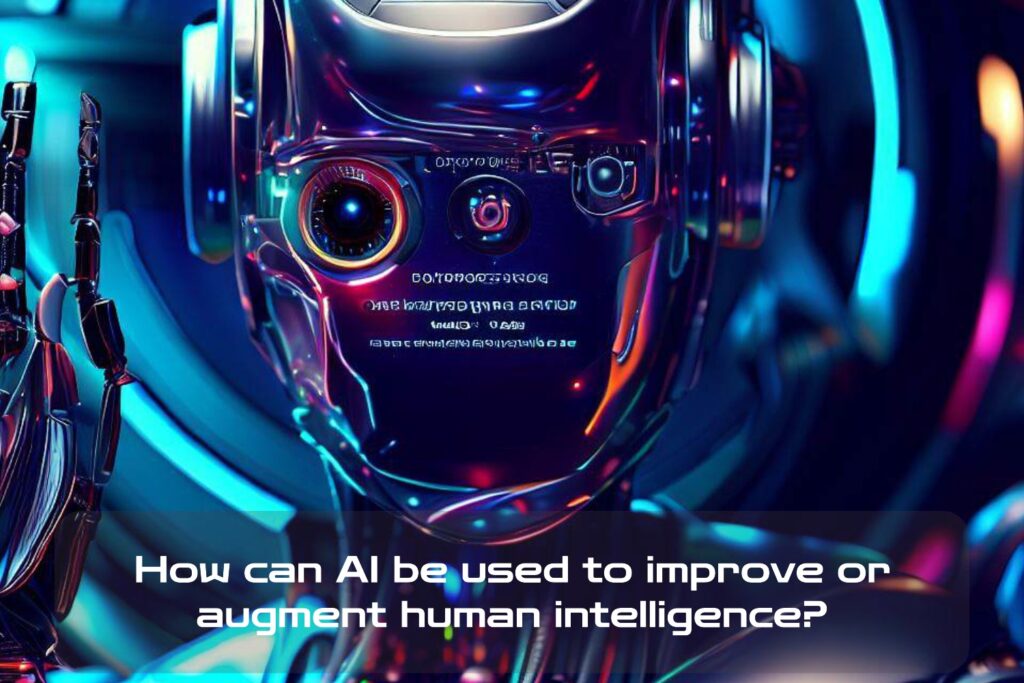How AI Can Help Us Reach New Heights of Intelligence
Artificial Intelligence, or AI, is a rapidly advancing field that has the potential to revolutionize the way we live, work, and learn.
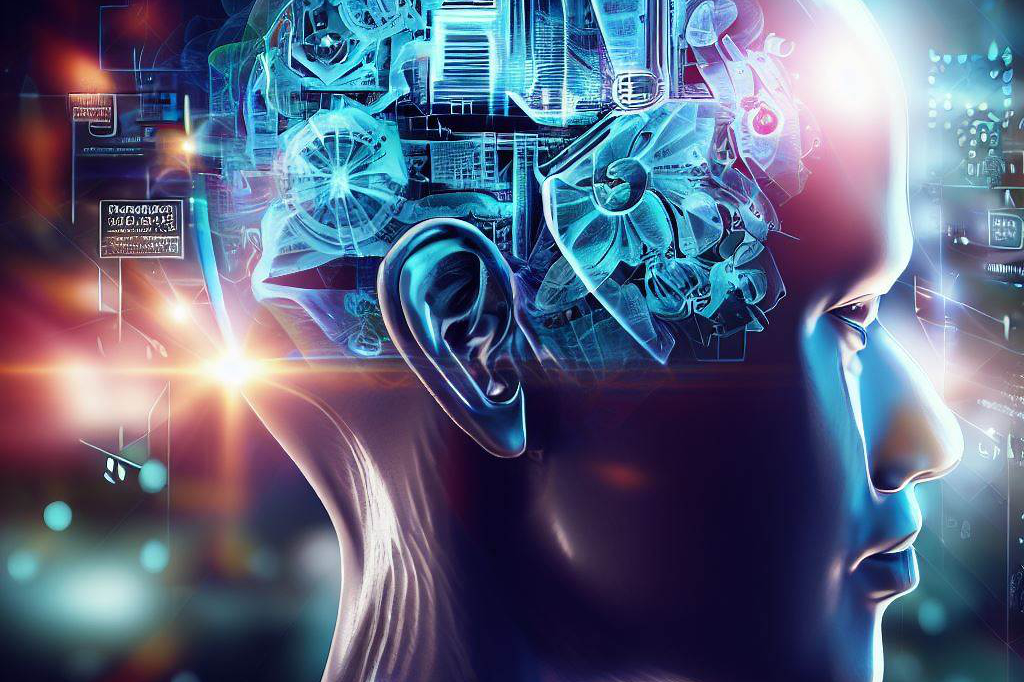
At its core, AI involves the use of machines that can perform tasks that normally require human intelligence, such as
- reasoning,
- perception,
- and decision-making.
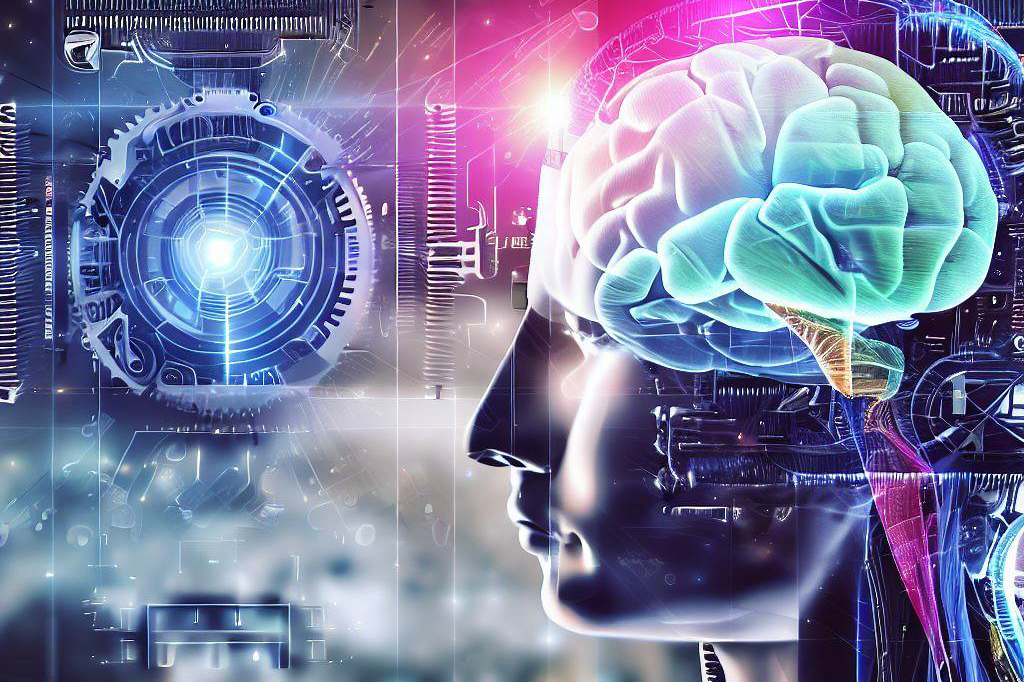
Human intelligence, on the other hand, encompasses a wide range of cognitive abilities, including
- problem-solving,
- creativity,
- and memory.
As technology continues to progress at an unprecedented pace, there is growing interest in exploring how AI can be used to augment or improve human intelligence. This has led to the development of various technologies and applications that can assist humans in performing cognitive tasks more efficiently and effectively.
The Importance of Improving or Augmenting Human Intelligence
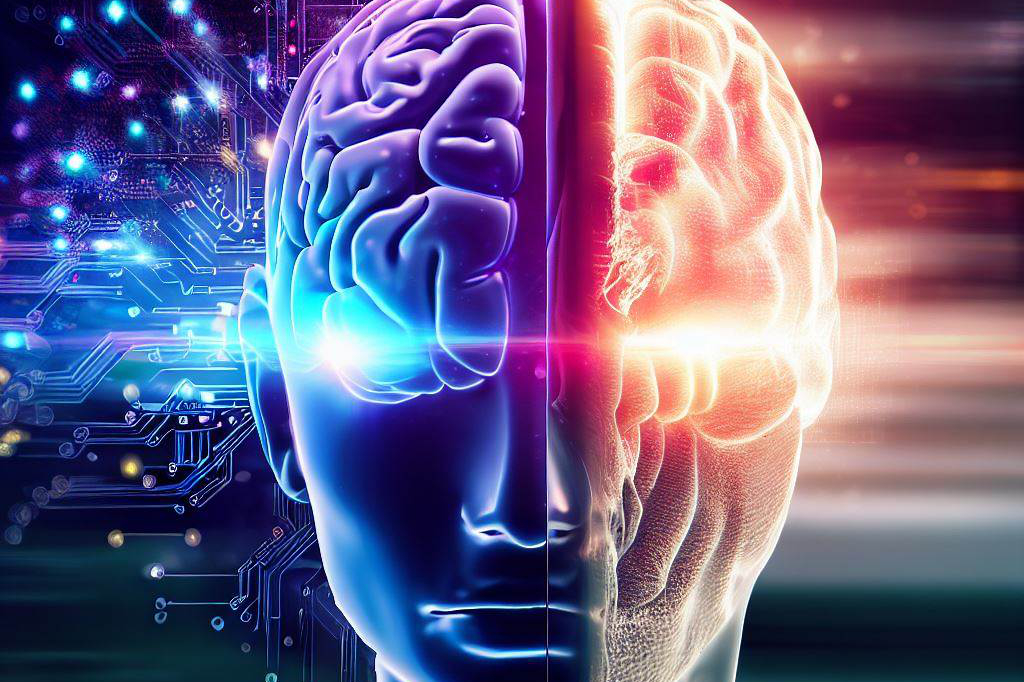
The ability to think critically and creatively is what sets humans apart from other species on our planet. It is this unique quality that has enabled us to develop language, art, science, and technology – all forms of human expression that have greatly contributed to our evolution as a civilization. However, despite our impressive cognitive abilities, there are still many areas where we struggle – such as complex problem-solving or remembering large amounts of information.
This is where AI comes in: by using machines with advanced computational power and algorithms, we will be able to enhance our cognitive abilities beyond their current limits. This will not only pave the way for new scientific discoveries but also lead to greater economic growth as individuals become more productive in their jobs.
With AI’s assistance, people could have more free time for leisure activities like pursuing an education or creative pursuits such as music or art. The possibilities are endless!
AI-powered Learning and Education
Personalized learning through AI algorithms
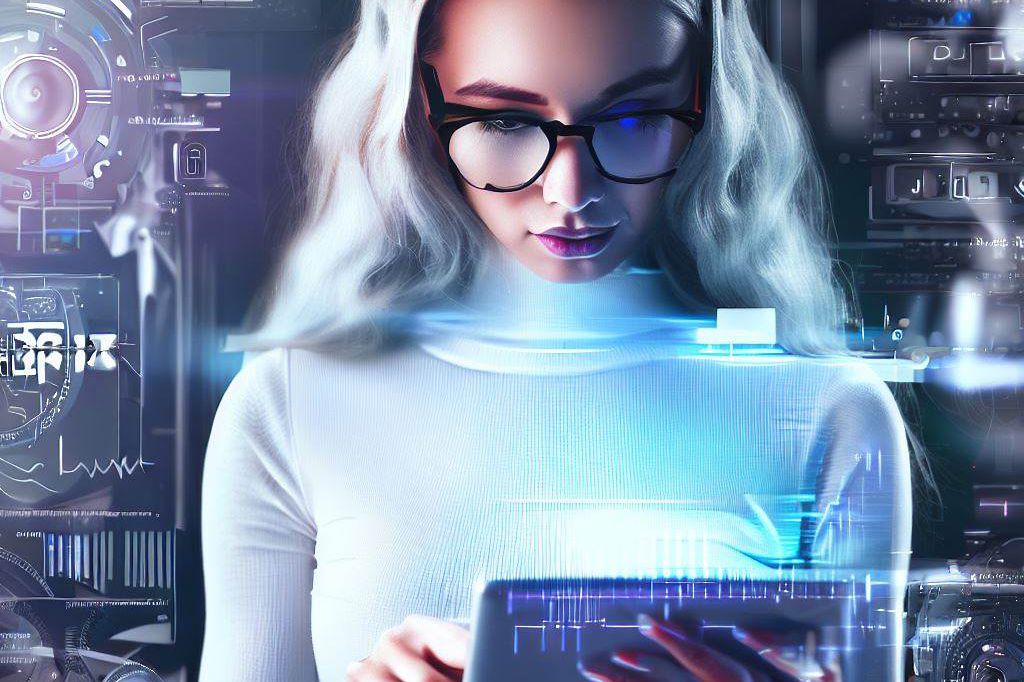
One of the most exciting applications of AI in education is personalized learning. With AI-powered algorithms, educators can create customized lesson plans that cater to each student’s individual needs and abilities. The AI can analyze each student’s learning progress, identify areas where they need more help, and provide them with targeted resources to improve their skills.
For example, if a student is struggling with a particular concept like algebraic equations, the AI can provide them with extra practice problems or suggest online resources that explain it in a different way. This type of personalized learning ensures that no student gets left behind and helps students progress at their own pace.
With the help of AI-powered tools like adaptive learning software, teachers will be able to create tailored curricula for each student. As a result, students will receive an education that fits their needs rather than being forced into one-size-fits-all instruction.
Adaptive learning techniques to cater to individual needs
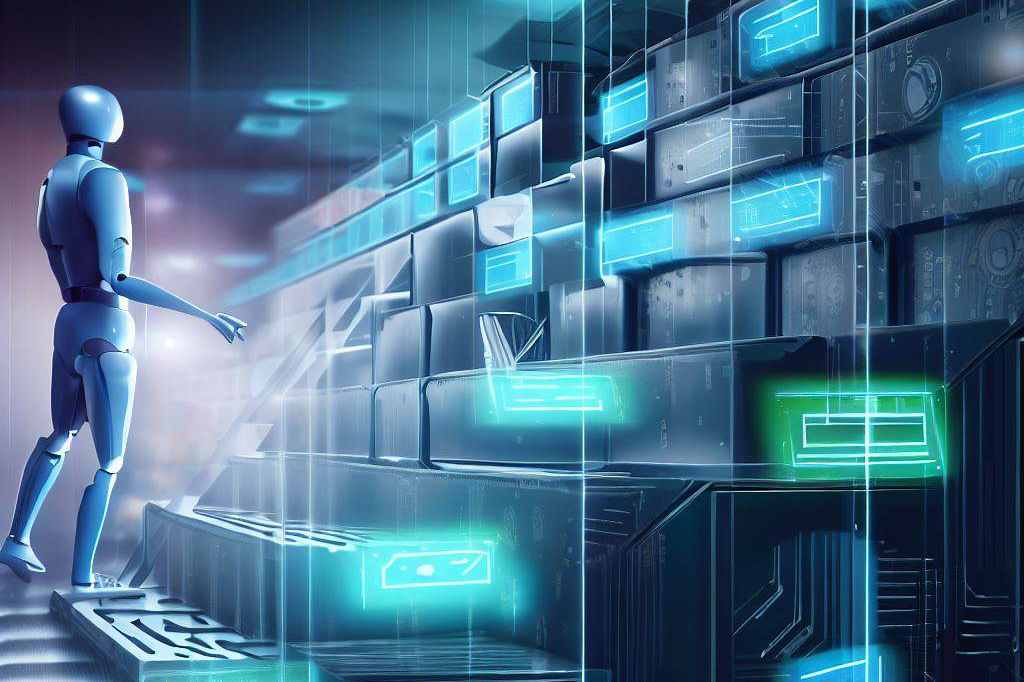
In addition to personalized lesson plans and resources, adaptive learning techniques can also be used to cater to individual needs. These techniques allow the system to adjust its approach based on how well an individual is performing on specific topics or tasks. For example, if a student is struggling with geometry concepts such as angles or shapes, then adaptive-learning techniques would enable the software system to focus more on those concepts until they’re mastered before moving on to more complex material.
This way, students get exposure only when they’re ready, which builds confidence while also maximizing retention rates for long-term memory storage, which is crucial for academic success. The use of adaptive-learning technology means that educators are able to respond quickly and effectively when students are not understanding certain concepts or lessons because these systems offer real-time feedback on how well a student is doing, allowing teachers to adapt their teaching strategies and methods accordingly.
Gamification of learning for better engagement
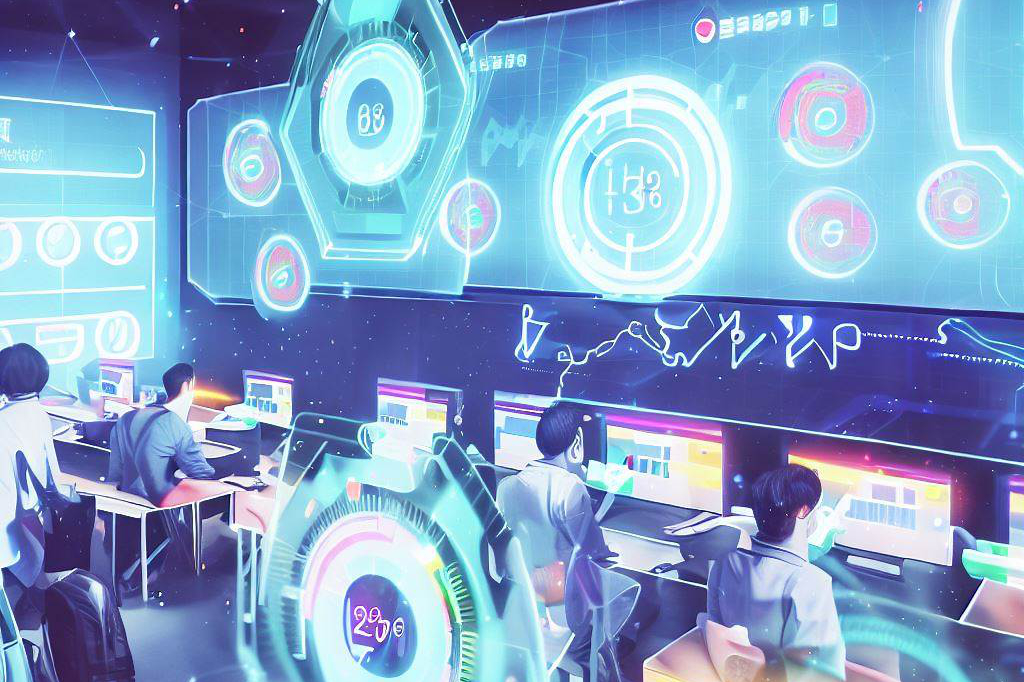
Another way AI can improve education is through gamification. By using game elements such as points, leaderboards, and virtual rewards to create an engaging and immersive learning experience, students are more likely to be motivated to learn and retain information. The concept of gamification has already been used in various classrooms around the world with positive results.
Gamified lessons tend to promote healthy competition between peers, which can help motivate them towards their academic goals. It also helps in creating an environment that fosters learning because it feels less like “work” or “studying” and instead encourages enjoyment in the process.
Furthermore, incorporating elements like VR (virtual reality) or AR (augmented reality) technology allows students to engage more fully with the subject matter they’re learning about in class. These technologies can transform abstract concepts into tangible experiences that make it easier for students to understand complex or difficult ideas.
AI-assisted Decision Making
Analyzing large amounts of data for better decision making
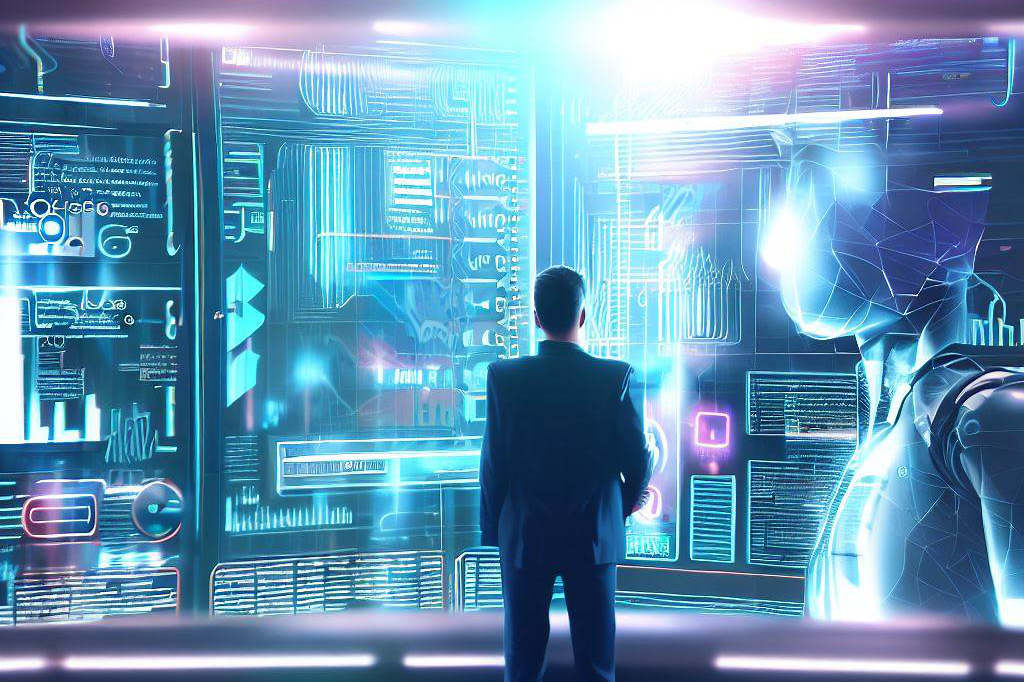
One of the most significant ways in which AI can augment human intelligence is through its ability to analyze vast amounts of data. With the help of machine learning algorithms, AI can sift through massive volumes of structured and unstructured data to identify patterns and insights that would be difficult, if not impossible, for humans to detect. For example, banks use AI-powered fraud detection systems that analyze customer transactions in real-time to flag suspicious activity.
Similarly, healthcare organizations use predictive analytics tools to analyze patient health records and identify individuals who are at risk of developing chronic diseases. This enables doctors to intervene earlier and provide more targeted treatment plans.
Predictive analytics to forecast future outcomes
Another significant benefit of AI-assisted decision-making is its ability to forecast future outcomes using predictive analytics. By analyzing historical data and identifying patterns, AI algorithms can make predictions about future events with a high degree of accuracy. For example, e-commerce companies use AI-powered recommendation engines that analyze customer purchase histories to predict what products customers are likely to buy next.
This helps companies personalize their marketing messages and drive higher conversions. Similarly, insurance companies use predictive modelling tools that take into account factors such as age, gender, lifestyle habits, and family history to forecast an individual’s risk of developing certain medical conditions or getting into a car accident.
Cognitive computing for complex problem solving
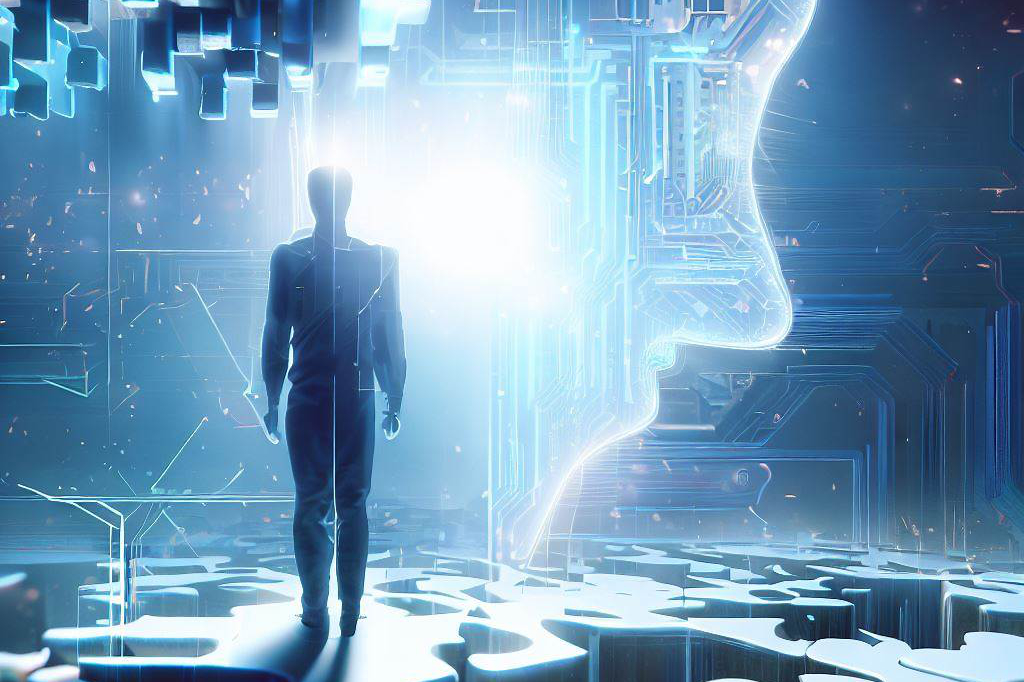
AI-powered cognitive computing systems are also being used increasingly in industries such as finance, healthcare, and manufacturing where complex problems need solving quickly. By simulating human thought processes such as reasoning and problem-solving at scale using neural networks or other algorithms,
Cognitive computing systems can help humans solve problems more quickly by providing them with insights based on vast amounts of data analysis. For example, cognitive computing in finance has been noted to be useful for detecting patterns in financial data.
Overall, AI-assisted decision-making offers immense benefits to organizations across different industries. By automating complex analysis and prediction tasks, AI can help humans make better-informed decisions and drive better outcomes.
Enhancing Creativity with AI
AI-generated Ideas: A Spark of Inspiration
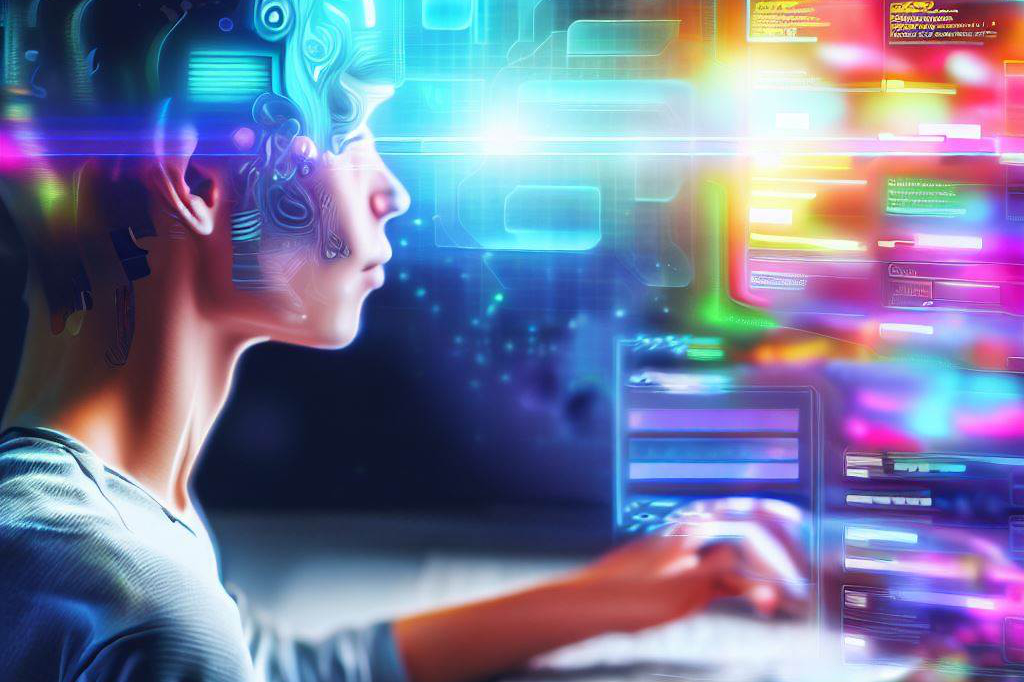
One of the most exciting ways that AI can enhance human creativity is by generating new ideas that humans may never have thought of before. Machine learning algorithms can analyze vast amounts of data and suggest novel combinations or solutions in a way that would be impossible for a human brain to do alone. For example, an artist may use an AI-powered tool to generate color palettes or suggest compositions based on their style, while a writer could use an AI writing assistant to generate unique ideas for their next piece.
While some people may worry that relying on AI-generated ideas could stifle artistic autonomy, the truth is that these tools can actually help inspire new creative directions and break through creative blocks. By freeing up cognitive resources previously used for brainstorming, creatives can focus on more complex and high-level tasks.
Collaborating with Intelligent Machines: The Future of Innovation?
Another way that AI can enhance human creativity is by facilitating collaboration between humans and machines. In this model, the machine takes on more routine or menial tasks while the human focuses on higher-level thinking and problem-solving. This approach is already being used in fields like architecture and design.
In architecture, for example, intelligent software programs can help designers optimize building layouts for energy efficiency or structural stability while allowing them to focus on creating unique aesthetics. In this way, humans are still at the helm of the creative process but are able to work more efficiently thanks to intelligent assistance.
Automating Repetitive Tasks: More Time to Create
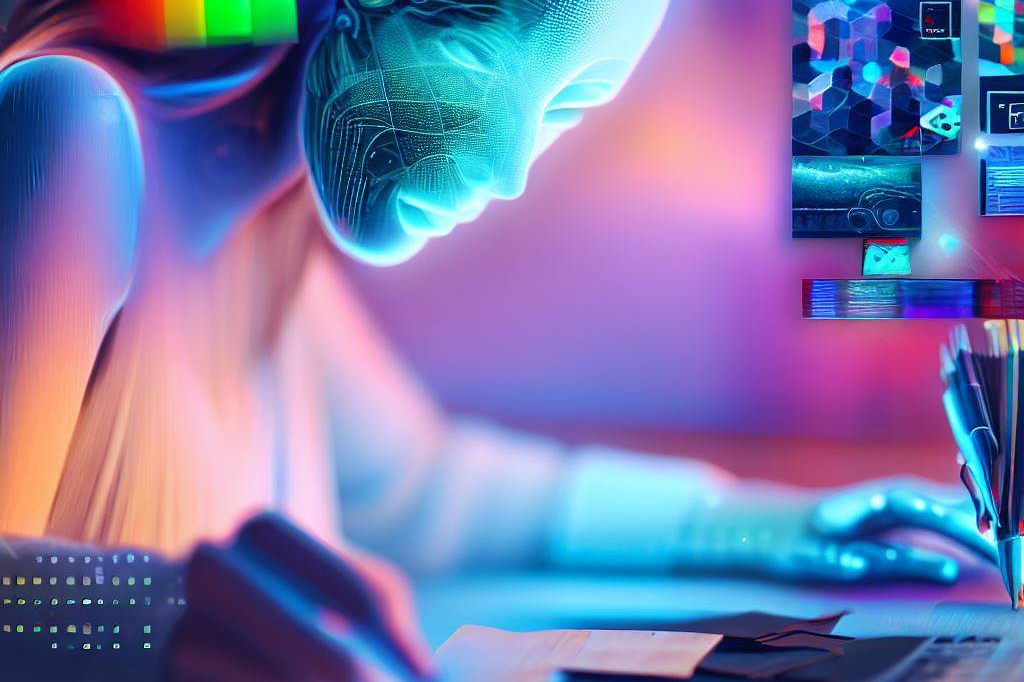
One of the most significant ways that AI can enhance creativity is by automating repetitive tasks, so creatives have more time to focus on ideation and execution. For example, an artist may use artificial intelligence software to automate repetitive tasks like coloring or shading, allowing them to focus on more complex and creative aspects of their work.
Similarly, a writer could use AI-powered tools to automate tasks like proofreading or fact-checking, freeing up time for more creative writing. By automating these routine tasks, creatives can experience fewer distractions and interruptions that might otherwise disrupt their flow state and hinder creativity.
Improving Memory and Recall with AI
Creating Digital Memory Aids Using Machine Learning Algorithms
Do you ever find yourself struggling to remember important details or appointments? AI-powered digital memory aids are here to help. With machine learning algorithms, these tools can analyze your habits and preferences, creating personalized reminders and notes to help you stay on top of things.
One example is the app Memo, which uses natural language processing (NLP) technology to create digital texts that resemble real conversations. Based on your input, Memo can generate text reminders that mimic the way people talk in real life.
The app also offers features like location-based reminders and voice recognition for hands-free interaction. Another powerful tool is Google Keep, which integrates machine learning algorithms into a simple note-taking app.
With Google Keep, you can create voice notes, set automatic reminders based on time or location, and even scan handwritten notes for digitization. These tools are just the tip of the iceberg when it comes to improving memory and recall with AI.
Enhancing Cognitive Abilities Through Brain-Computer Interfaces
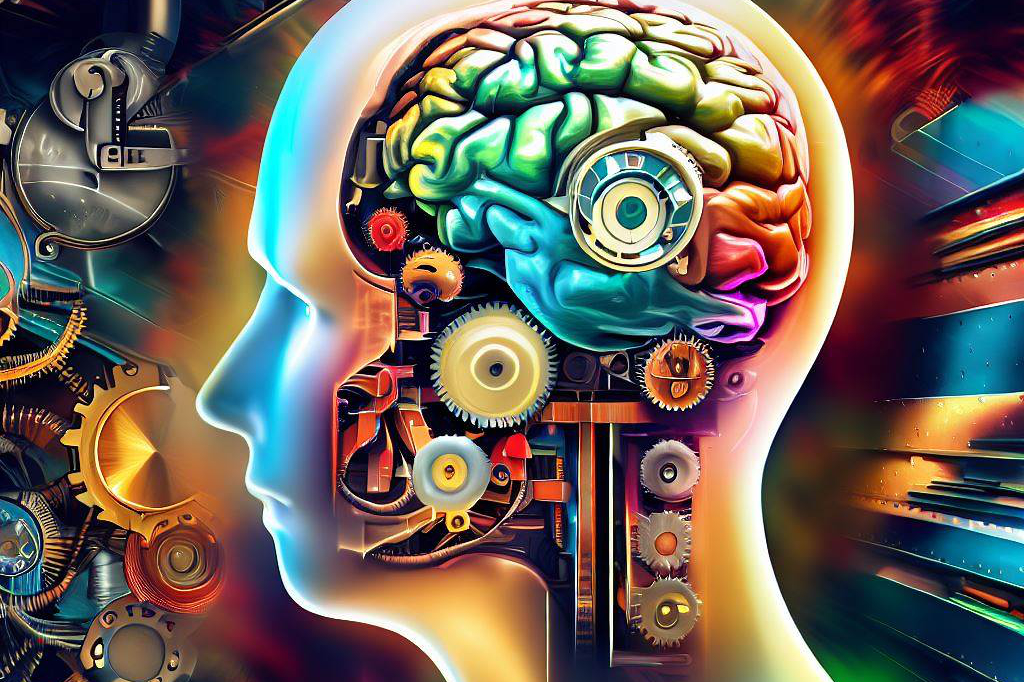
Brain-computer interfaces (BCIs) are devices that translate brain signals into computer commands. This cutting-edge technology has the potential to revolutionize human cognition by enhancing our ability to process information and remember details.
One example of a BCI is NeuroSky’s MindWave headset, which uses EEG technology to monitor brain activity related to attention and meditation. Through a series of games and exercises, users can train their brains to focus better for longer periods of time.
Another promising application of BCIs is in the field of neuroprosthetics – devices that replace missing or damaged body parts through direct neural control. For example, a person who has lost a limb could use a BCI-enabled prosthetic arm controlled by neural signals from their brain.
Using Virtual Assistants to Manage Daily Tasks and Reminders
Virtual assistants like Amazon’s Alexa and Google Assistant are becoming increasingly popular, thanks to their ability to help us manage our daily tasks and reminders. These AI-powered assistants use natural language processing to understand our requests and provide personalized recommendations based on our habits and preferences. For example, with Alexa, you can set reminders for appointments, create shopping lists, order food delivery, and even control your home automation devices with just your voice.
The more you use these virtual assistants, the better they become at predicting your needs and providing relevant suggestions. In addition to managing tasks and reminders, virtual assistants can also be used as educational tools.
For example, Alexa offers a wide range of skills related to learning new languages or practicing math problems. With these tools at our fingertips (or rather, at our vocal cords), the sky’s the limit when it comes to improving memory and productivity with AI.
Ethical Considerations in Augmenting Human Intelligence with AI
Balancing the benefits and risks of relying on intelligent machines
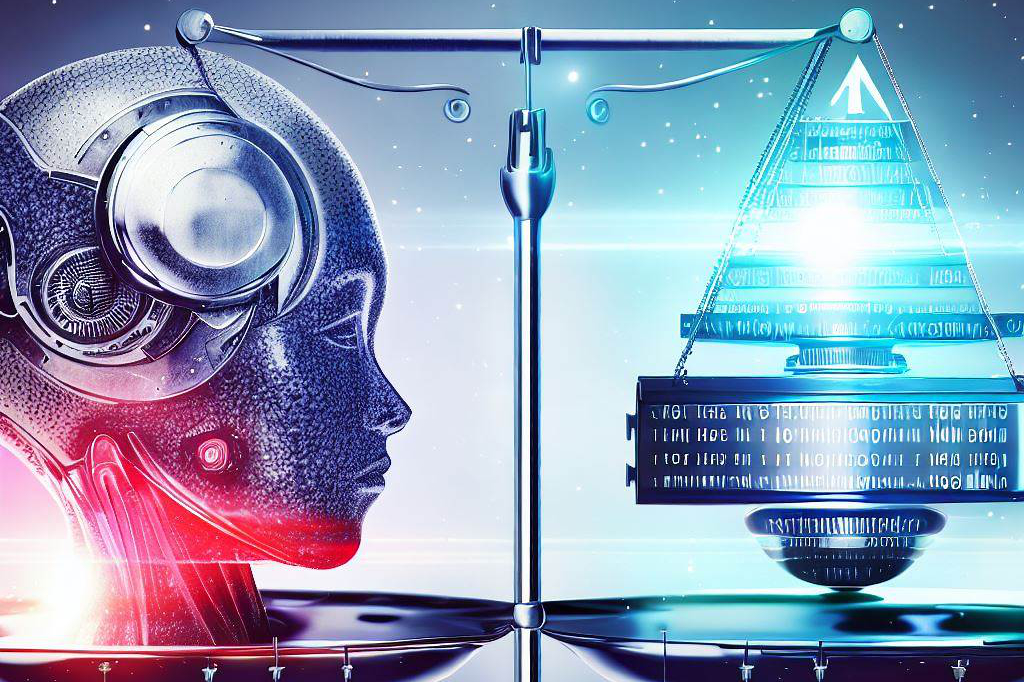
While there are clear advantages to using AI to augment human intelligence, it is important to weigh the potential risks as well. One major concern is that increased reliance on intelligent machines could lead to a loss of critical thinking skills and creativity in humans. Additionally, there is the risk that biased or flawed algorithms could perpetuate social inequalities or harm individuals.
To mitigate these risks, it is important for individuals and organizations to remain vigilant in their use of AI technologies. This may involve implementing ethical standards for AI development and deployment, as well as regularly reviewing and adjusting these standards as necessary.
Ensuring transparency and accountability in decision-making processes
Another key consideration when using AI to augment human intelligence is ensuring transparency and accountability in decision-making processes. This involves not only understanding how algorithms make decisions but also being able to explain those decisions in a way that humans can understand.
To achieve this level of transparency, it may be necessary to implement regulations requiring companies to disclose information about their AI algorithms and decision-making processes. It may also involve creating oversight committees or other bodies responsible for monitoring the use of AI technologies.
Addressing concerns about job displacement due to automation
One significant concern associated with using AI to augment human intelligence is the potential for job displacement due to automation. As machines become increasingly capable of performing complex tasks traditionally performed by humans, there is a risk that many individuals will lose their jobs or be forced into lower-paying positions.
To address this issue, it may be necessary for governments and organizations around the world to rethink traditional labor policies and develop new strategies for supporting workers whose jobs have been displaced by automation. This might include investing in education programs focused on developing skills that cannot easily be automated or creating new job training programs that help individuals transition from jobs at risk of automation to more secure positions.
Final Thoughts
The Future of Human Intelligence
The use of AI to improve or augment human intelligence has the potential to revolutionize the way we learn, work, and live. The benefits of using intelligent machines to assist us with decision-making, memory recall, creativity, and education are numerous.
Personalized learning techniques can help individuals reach their full potential by catering to their individual needs and skills. Predictive analytics can forecast future outcomes and help us make better decisions.
AI-assisted problem-solving can enhance our cognitive abilities and lead to innovative solutions for complex problems. By automating repetitive tasks, we can free up creative time for more meaningful work.
However, as with any new technology, there are ethical considerations that must be taken into account such as ensuring transparency and accountability in decision-making processes. The importance of using AI to improve or augment human intelligence cannot be overstated.
As we face increasingly complex problems in our world such as climate change and social inequality, we need all the tools at our disposal to find solutions. By embracing intelligent machines as partners in our quest for knowledge and progress, we can unlock new levels of creativity and innovation.
An Optimistic Outlook
While there may be concerns about job displacement due to automation, history has shown that new technologies often create new jobs that were previously unimaginable. By embracing AI as a tool rather than a replacement for human intelligence, we can create a brighter future where humans work alongside intelligent machines to achieve greater things than either could alone.
As we continue to explore the possibilities of AI-assisted learning and problem-solving, it is important that we remain open-minded about what is possible. The future belongs not only to those who adapt but also those who imagine new possibilities beyond what currently exists.
The Path Forward
The path forward towards improving or augmenting human intelligence with AI requires collaboration among scientists, educators, policymakers, and the general public. We must work together to ensure that AI is developed in an ethical and responsible manner that benefits all of society.
As we move towards a future where intelligent machines will play an increasingly important role in our lives, it is up to us to shape that future in a way that maximizes the potential benefits while minimizing the risks. By doing so, we can create a world where human intelligence is augmented by AI to achieve greater things than we ever thought possible.
FAQs
1. What is artificial intelligence (AI)?
– Artificial Intelligence, or AI, is a rapidly advancing field that involves the use of machines capable of performing tasks that typically require human intelligence, such as reasoning, perception, and decision-making. It aims to revolutionize the way we live, work, and learn.
2. How can AI improve human intelligence?
– AI has the potential to augment or improve human intelligence by enhancing our cognitive abilities beyond their current limits. By using machines with advanced computational power and algorithms, AI can help us in various ways, such as problem-solving, creativity, and memory recall.
3. What is personalized learning through AI algorithms?
– Personalized learning is one of the exciting applications of AI in education. With AI-powered algorithms, educators can create customized lesson plans that cater to each student’s individual needs and abilities. AI can analyze students’ learning progress, identify areas where they need more help, and provide targeted resources to improve their skills.
4. How does gamification enhance education with AI?
– AI can improve education through gamification, which uses game elements like points, leaderboards, and virtual rewards to create an engaging and immersive learning experience. Gamified lessons promote healthy competition, motivate students towards academic goals, and create an enjoyable learning environment. Additionally, incorporating technologies like virtual reality (VR) or augmented reality (AR) can make abstract concepts more tangible and easier to understand.
5. How can AI assist in decision-making?
– AI can assist in decision-making by analyzing large amounts of data for better insights. Machine learning algorithms enable AI systems to sift through vast volumes of structured and unstructured data to identify patterns and insights that may be difficult for humans to detect. AI-assisted decision-making also involves predictive analytics to forecast future outcomes, allowing organizations to make informed decisions. Additionally, cognitive computing systems simulate human thought processes, helping humans solve complex problems more quickly and efficiently.
6. How does AI enhance creativity?
– AI can enhance human creativity by generating new ideas that humans may not have thought of before. Machine learning algorithms analyze extensive data to suggest novel combinations or solutions. AI can also facilitate collaboration between humans and machines, where machines handle routine tasks, allowing humans to focus on higher-level thinking and problem-solving. Furthermore, automating repetitive tasks using AI frees up creative time for more meaningful work.
7. How can AI improve memory and recall?
– AI-powered digital memory aids can help individuals improve memory and recall. Machine learning algorithms analyze habits and preferences to create personalized reminders and notes. There are also brain-computer interfaces (BCIs) that translate brain signals into computer commands, enhancing cognitive abilities. Virtual assistants like Amazon’s Alexa and Google Assistant can manage daily tasks and reminders, using natural language processing to understand and fulfil requests.
8. What are the ethical considerations in augmenting human intelligence with AI?
– While there are clear benefits to using AI to augment human intelligence, it is crucial to address potential risks. These include the loss of critical thinking skills and creativity, biased or flawed algorithms perpetuating inequalities, and job displacement due to automation. Mitigating these risks involves implementing ethical standards for AI development, ensuring transparency and accountability in decision-making processes, and addressing concerns about job displacement through new labor policies and support programs.
9. What is the future of human intelligence with AI?
– The future of human intelligence with AI is promising. By embracing AI as a tool rather than a replacement, we can create a future where humans and intelligent machines work together to achieve greater things. Collaboration among scientists, educators, policymakers, and the general public is crucial in developing AI in an ethical and responsible manner. By shaping the future of AI, we can maximize its benefits and minimize risks, ultimately creating a world where human intelligence is augmented by AI to achieve unimaginable possibilities.
TL;DR…
– ✨ AI has the potential to revolutionize the way we live, work, and learn by enhancing human intelligence through tasks like reasoning, perception, and decision-making.
– 🧠 AI can be used to augment or improve human intelligence in areas where humans struggle, such as complex problem-solving and remembering large amounts of information.
– 🎓 Personalized learning through AI algorithms allows educators to create customized lesson plans that cater to each student’s individual needs and abilities, ensuring no student gets left behind.
– 🎮 Gamification of learning using AI elements like points, leaderboards, and virtual rewards promotes engagement, healthy competition, and enjoyment in the learning process.
– 📊 AI can assist in decision-making by analyzing large amounts of data to identify patterns and insights, enabling better-informed decisions and higher productivity.
– 🎨 AI can enhance human creativity by generating new ideas, facilitating collaboration between humans and machines, and automating repetitive tasks to free up creative time.
– 📝 AI-powered tools and virtual assistants can improve memory and recall through personalized reminders, digital memory aids, and brain-computer interfaces that enhance cognitive abilities.
– ⚖️ Ethical considerations include balancing the benefits and risks of relying on intelligent machines, ensuring transparency and accountability in decision-making, and addressing concerns about job displacement due to automation.
– 🌟 The future of human intelligence with AI requires collaboration among scientists, educators, policymakers, and the public to develop AI in an ethical and responsible manner, maximizing benefits while minimizing risks.

C M, a seasoned editor, journalist, and consultant, is deeply fascinated by the convergence of technology, space, and the future of humanity.
With a particular interest in transhumanism, futurology, and the philosophical and ethical dimensions of these domains, C M serves as the lead contributor to TranscendSphere and SpaceSpotlight.
When not penning insightful articles on these rapidly evolving fields, C M indulges in their love for podcasts and books, proudly embracing their status as a ‘Happy Nerd Extraordinaire!’

